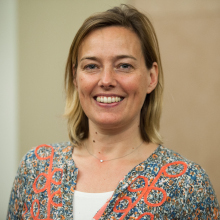Somalia’s Economy Rebounding from ‘Triple Shock’
Somalia’s economy is rebounding from the “triple shock” that ravaged the country in 2020: the COVID-19 pandemic, extreme flooding, and the locust infestation. Real GDP growth is projected at 2.4 percent in 2021. This growth momentum is expected to continue in the medium term and reach pre-COVID-19 levels of 3.2 percent in 2023.
According to the latest World Bank Somalia Economic Update reports, the economy contracted by 0.4 percent in 2020, less severe than the 1.5 percent contraction projected at the onset of the global pandemic. Higher-than-anticipated aid flows, fiscal policy measures put in place by the Federal Government of Somalia to aid businesses, social protection measures to cushion vulnerable households, and higher-than-expected remittance inflows mitigated the adverse effects of the triple shock.

Read also:Bumpa Set to Build e-Commerce Solutions for Retail Businesses in Nigeria
The report notes that the disruptions stemming from COVID-19 containment measures reduced federal and state revenue collection while increasing pressure to spend more on health and disaster relief. Large increases in external grants enabled the federal government to begin rebalancing public spending toward economic and social services and to provide funds for new social programs and emergency response projects to increase resilience.
“As Somalia embarks on the road to recovery from the triple shocks, policy interventions that raise productivity, create jobs and expand pro-poor programs will be key,” said Kristina Svensson, World Bank Country Manager for Somalia. “Creating jobs and ensuring that the most vulnerable are supported throughout the crisis need to be at the center of policy action and private sector response.”
Interventions to improve the investment climate and encourage the formalization of businesses to attract more private investment would include reforms focused on reducing the cost of electricity and improving on its reliability, leveling the playing field among private firms, reducing red tape, and broadening financial inclusion.
Read also:Egyptian Fintech Startup Kashat Raises $1.75m Bridge Funding Round
The special focus of the report is on the health sector. It highlights that 30 years of political instability has made Somalia’s health system the second most fragile in the world. The COVID-19 pandemic has brought the sector under sharp focus and put investing in Somalia’s health system as an urgent political and economic consideration that is foundational to reducing fragility.
“Support for the health sector is an essential component of resilient and inclusive development and investing in health sets Somalia on a path to reaping substantial demographic dividends from improvements in life expectancy and reductions in fertility,” said John Randa, World Bank Senior Economist. “These investments are planned to contribute to improved health outcomes and strengthened government systems.”
The report also notes that strengthening Somalia’s health system is one of the biggest direct influences on improving human development and enhancing economic development in the country. The report recommends opportunities in the areas of health financing, health service delivery and stewardship to improve Somalia’s health sector. Incoming funding from the World Bank is aimed at helping Somalia focus on high-impact, cost-effective interventions that target the primary burdens of disease.
Kelechi Deca

Kelechi Deca has over two decades of media experience, he has traveled to over 77 countries reporting on multilateral development institutions, international business, trade, travels, culture, and diplomacy. He is also a petrol head with in-depth knowledge of automobiles and the auto industry

